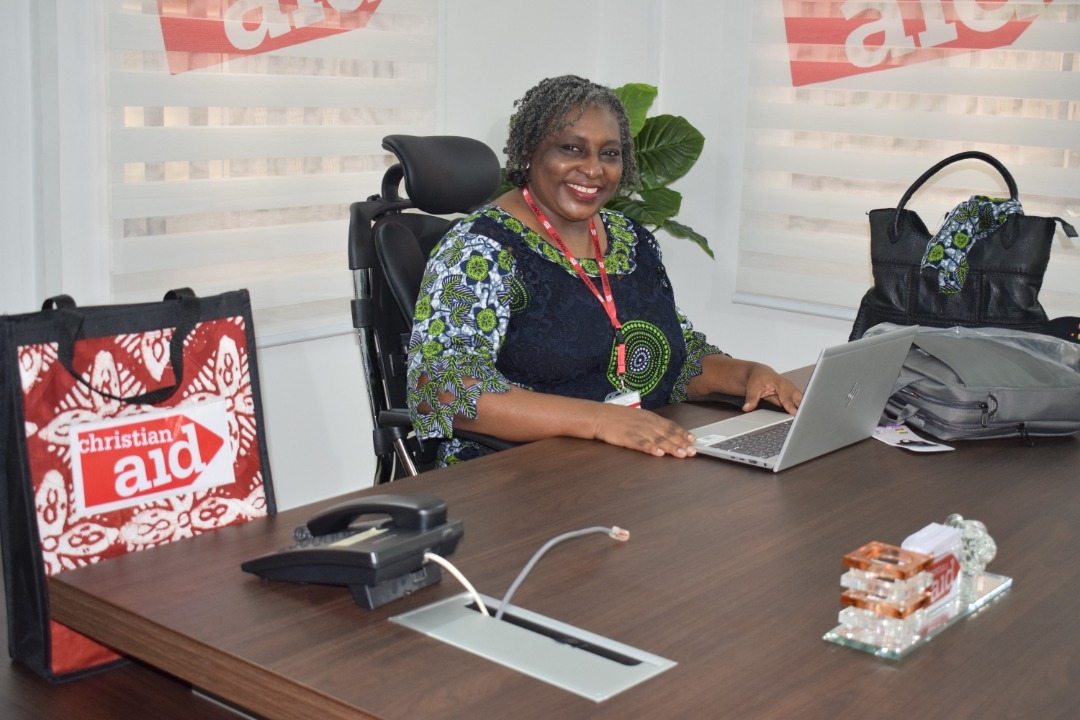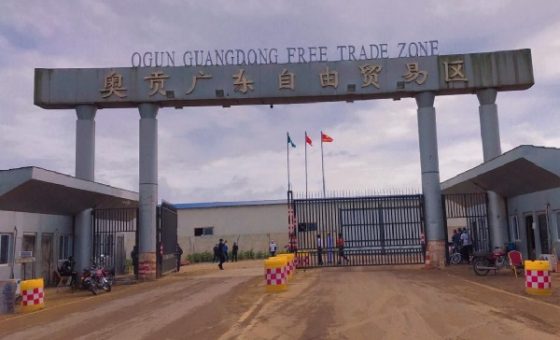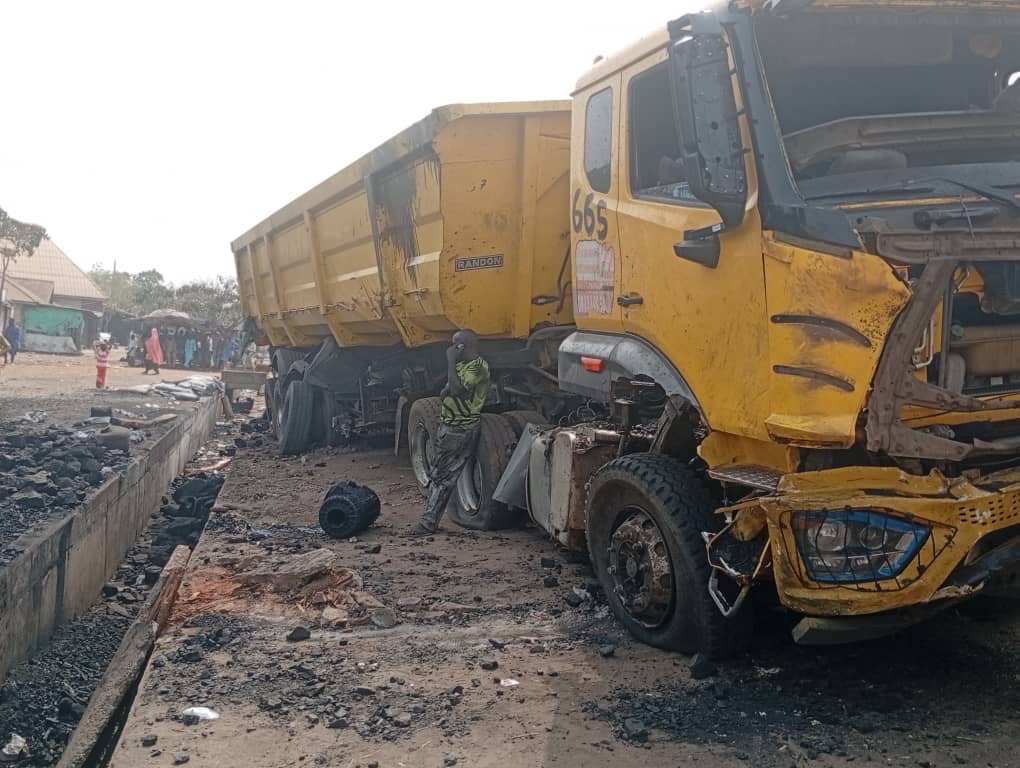
As Nigeria joins the rest of the world in celebrating this year’s International Women’s Day, the International Programme Director, Christian Aid, Ms. Ojobo Ode Atuluku, has called for continuous agitations towards gender equality.
Speaking on the team of this year’s celebration – Breaking the Bias, Ojobo noted that it cannot be achieved by simply talking to people but through activism in many forms.
“I think it has to do with women in every sector identifying the bias they face in their respective sectors. They should not only identify the bias but also the losses suffered as a result of such bias,” Ojobo said.
She suggested that this year’s theme should be sustained until gender equality is achieved.
Ojobo decried the fact that while there are lots of inequality for female citizens in the country, some were even backed by law and this she said, called for continuous agitations across sectors.
Speaking on the recent refusal of the National Assembly to create special seats for women, Ojobo blamed the action on lack of understanding of the benefits of having women in policy making position. According to her, the failure of that bill did not come as a surprise because injustice against women has always prevail in Nigeria.
She therefore called for enabling laws that recognize the peculiarity of feminine gender in the country.
“I am not surprised that the bill failed. I am also not surprised that it was only a section of women that supported that bill and that the votes for the bill at the National Assembly were less than the number of sponsors for the bill.
She stressed that increased representation of women in electoral and appointive positions in the country is a battle that all Nigerians that believe in the development of the country must join.
“If you look at it, gender equality has nothing to do with women taking over from men. I think that is one of the major fears that drive some of the resistance that we see around gender equality or gender equity bills.
“When we talk about gender equality, we are talking about equality of rights. We are talking about the fact that women’s rights are also human rights and should be recognized as such.
“It is about the fact that both genders should have equal rights as given under the constitution and also, the fact that once women have, and enjoy their rights, it will not deprive men of enjoying their rights.”
Ojobo who has contributed so much to the fight against gender inequality in Nigeria and beyond, said she began her career as a lawyer with the Ministry of Justice, where she focused on public prosecution, civil litigation as well as legislative drafting.
“I think my job in legislative drafting is actually what opened my eyes to the different aspects of society and the laws as they apply in different areas. After my first year in Benue State, one of the tasks I did was collection of all the laws that were applicable in both states and national levels. This exposed me to the multidimensional aspects of life and how the law affects our lives in whatever we do.
She decried that from her experience in over three decades’ struggle against gender inequality and discriminations, not much has changed in the way the society perceived the female gender.
“When you look at some states, it will look like women have a very unique role in the society. When you go to our traditional history, you find that they are gender roles; the different roles that women play even in the power structure of traditional communities.
“However, when you come to Nigeria of today, the place of women has become very insignificant. There is hardly any respect for women, and there is hardly any space for rights of women. There is a lot of inequality for female citizens in the country and some of them are even backed by law, and that is what is bringing about the agitations that we have had through time for gender equality in many aspects.
“I recall that Nigerian women from the 19 Northern were unable to vote until 1979 elections. The agitation that women before us had was what brought about that result.
“And there are many other areas. If you look at the health sector and what is happening with safe motherhood, you wonder why any woman should die while giving birth to a child. These are all indicators of the inequality that women face in the society that we need to tackle.
“If you look at the education sector, girl child education is a big issue. If there were barriers in accessing education right from the early age, you can imagine the disadvantages of the ripple effects of that inability to access even basic education and how it affects even their children because it has been shown that even primary education is a contributory factor to how a mother takes care of her family.
“So, in terms of gender equality, I think there is a lot of gaps in Nigeria and we need to really sit up and look at those gaps”, she said.
On whether gender equality is achievable in Nigeria, Ojobo expressed optimism, stressing that with renewed energy at every step, women will one day, achieve the recognition they deserve.
“Yes, I believe it is possible to achieve gender equality in Nigeria and that is the reason we are investing the energies that we are investing into it. If you look at it, the issue of gender equality has nothing to do with women taking over from men.
“I think that is one of the things that drive some of the resistance that we see around gender equality or gender equity, as some people would prefer to call it.
“When we talk about gender equality, we are talking about equality of rights. We are talking about the fact that women’s rights are also human rights and should be recognized as such.
“So, it is really important for us to know what we are looking at when we talk of gender equality in many parts of Nigeria. The tradition says that girls are not as important as boys. A male child is valued more than a female child.
“Yet, when you look at the relationships between the female child and the parents, it is a different story because most people later come to appreciate their female children. They acknowledge the capabilities that women come with but when it comes to public domain, women face discriminations and they are regarded as weak.
And so, it is a matter of conscientization and awareness creation towards appreciating the capabilities of women for national development.
“Otherwise, as they say, we will just be like a bird trying to fly with one wing and the nation will continue to suffer the consequences of not appreciating, acknowledging and applying the capabilities of more than half of our population.”
Speaking on the poor representation of women in politics, Ojobo expressed the need for women in all spheres of lives and in every part of the country to understand what it means to have significant female representatives in the three arms of government.
“The also need to know what it means for development to have women in such places. So, it is not an agitation of a select group of women in Nigeria but an agitation of the Nigerian people to see more women in public offices, in public spaces and also, for us to know that the cultural barriers faced by women go a long way in detract us as a nation,” Ojobo stated.
[ad unit=2]






